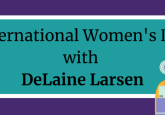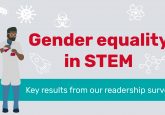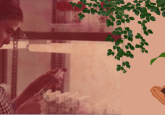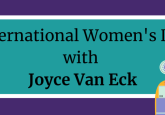International Women’s Day 2024: inspiring inclusion with BioTechniques
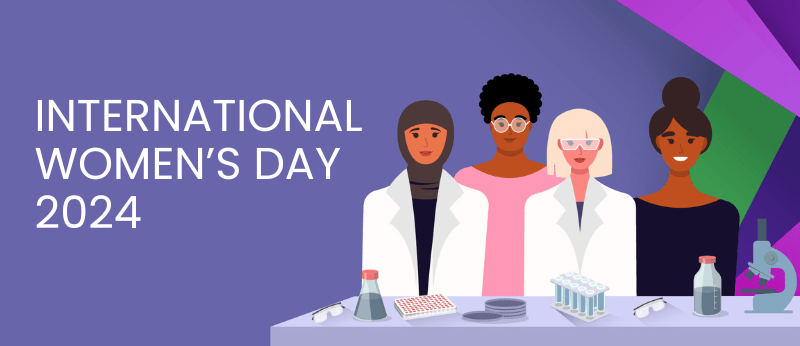
To celebrate International Women’s Day 2024, we are thrilled to share our collection of interviews and features from influential women in STEM.
The theme for International Women’s Day 2024 is #InspireInclusion, aiming to collectively build a more inclusive world for women. By inspiring others to recognize and value women’s inclusion, we can create an environment of belonging, significance and empowerment.
In this series, BioTechniques and our sister sites – RegMedNet, Bioanalysis Zone, Neuro Central and Oncology Central – aim to amplify the voices of women working in STEM, showcase their groundbreaking research and share resources and initiatives aimed at supporting women in their scientific endeavors.
Explore more from each of our digital hubs below!
BioTechniques
Why do we sleep?
As someone who struggles with sleep, Digital Editor Annie Coulson always found it a fascinating – albeit frustrating – subject, so she jumped at the chance to sit down with Professor of neurobiology Yang Dan at the Society for Neuroscience’s annual meeting, Neuroscience 2023 (Washington, DC, USA, 11–15 November) to talk about how and why we sleep.
Could a virus be the missing piece of the Alzheimer’s puzzle?
In the early 90s Ruth Itzhaki (Manchester University, UK) discovered that herpes simplex virus-1 caused the formation of β-amyloid peptides, a precursor to the β-amyloid plaques associated with Alzheimer’s. For the next 30 years, Itzhaki persevered with her investigations of the link between pathogens and Alzheimer’s, despite antipathy from the scientific community.
Meet the researcher behind Monstrous osteoclasts
In 2023, BioTechniques hosted its first scientific image competition. The winner was Monstrous osteoclasts by Sayali Chandekar, a PhD student in the field of biotechnology at Savitribai Phule Pune University. In this interview, we learn more about her image and the research behind it.
microRNAs as a diagnostic and prognostic biomarker for psychiatric disorders
Cecilia Flores and Alice Morgunova discuss their work on the molecular and cellular pathways that underlie depression in adolescence, and explain the techniques utilized to accurately profile biomarkers and determine the differences between healthy control individuals and adolescents diagnosed with depression.
Ethnobiotechnology in the Caribbean: sowing the seeds of sustainable agriculture and medicinal plant research
In this feature, we learn about Sylvia Mitchell’s career in medicinal plant research, the techniques she uses for plant tissue culturing and biochemical analyses, the importance of harnessing native plant species for sustainable practices and the commercial aspects of her field of research. In honor of International Women’s Day, she also shared her personal experiences with mentoring and teaching.
RegMedNet
Improving transplant outcomes and cell therapy approaches
Diana Hernandez, the Head of Translational Immunotherapy at Anthony Nolan Research Institute and honorary Assistant Professor at the UCL Cancer Institute (both London, UK), discusses the research strategies the immunotherapy research group is employing to improve transplant outcomes and cell therapy approaches.
Navigating career currents: science, leadership and gender equality
Francoise de Longueville, Managing Director at Eppendorf Application Technologies (Namur, Belgium) and Head of the Global Core Test lab at Eppendorf SE (Hamburg, Germany), reflects on pivotal moments in her career and explores how diversity is a key driver of innovation.
Bioanalysis Zone
Lisa Sellers talks opportunities, mentorship and initiatives for women in STEM
We spoke to Lisa Sellers, CEO of Vector Laboratories, about how she’s using her STEM experience to nurture the next generation of female scientists.
Neelam Kumarswami’s perspectives on mentoring & initiatives for women in STEM
Neelam Kumarswami describes how flexible work arrangements supporting work-life balance is critical for supporting women in STEM.
AAPS 2023: interviews from the floor with Priya Muralidharan
Priya Muralidharan discusses the challenges women in scientific roles experience when trying to achieve work-life balance and the tools available to help maintain this balance.
International Women’s Day 2024 with Jennifer Zimmer
We spoke to Jennifer Zimmer about how support from her female colleagues helped to shape her career in STEM.
Closing the gap: an International Women’s Day interview with Otilia Cheregi
Otilia Cheregi explores the pursuit of inclusion in STEM to ensure women-led workplaces have female representation in senior positions.
Oncology Central
Navigating opportunities and challenges in pancreatic cancer: an interview with Mandana Kamgar
Mandana Kamgar (Medical College of Wisconsin, WI, USA) discusses the impact of social and economic factors on women in medical careers as well as the importance of mentorship and how she is looking to pay that forward to the next generation of oncologists.
Championing diversity and inclusion in neuro-oncology
Macarena de la Fuente (Sylvester Comprehensive Cancer Center, FL, USA) highlights the significance of mentorship and details her involvement in the Society for Neuro-Oncology’s Women and Diversity Committee, focusing on initiatives to promote diversity and leadership development.
How can AI help provide real-time insights into glioblastoma disease progression?
Radka Stoyanova (Sylvester Comprehensive Cancer Center, Miller School of Medicine, University of Miami, FL, USA) is working on an innovative approach to trace glioblastoma tumors in large MRI datasets using machine learning, read about how this could be applied in clinics in this feature.
Frontiers in brain tumor research and empowering women in STEM
In this interview, hear from Karen Noble from Brain Tumour Research (UK) about her career in cancer research, with a particular focus on research taking place in neuro-oncology, pushing forward our understanding of conditions such as glioblastoma.
Neuro Central
A journey through neuroscience: big data and the puzzle of dementia resilience
In this interview, Becky Carlyle’s (University of Oxford, UK) speaks about the importance of diverse big data in Alzheimer’s research, strategies to allow more women to advance in neuroscience including changes in fellowship rules and the role mentorship has played in her career development.
How can climate change impact brain health?
What policy changes could help to protect vulnerable populations from the neurological effects of climate change? Find out in this interview with Burcin Ikiz (EcoNeuro).
What role does the brain’s vascular system play in neurodegeneration?
In this interview, we speak with Fanny Elahi (The Mount Sinai Hospital, NY, USA) about the captivating intersection of neuroscience and vascular biology. Elahi also shares her motivation for neuroscience and the pivotal role mentorship has played in her career.
